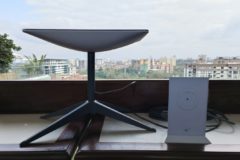With only 14 data centres nationwide and growing demand for storage, Citidata Centre plans to build six Tier III edge data centres in Ogun and Lagos state in the next two years.
Edge data centres—small data centres close to users and their devices—have low capacity and are easy to manage. They offer affordability in a price-sensitive market.
Before joining forces with TopTech Engineering Limited to establish Citidata, Petrodata Management Services managed edge data centres in Lagos and Abuja for oil and gas clients. TopTech Engineering worked with Huawei to provide final fittings for the Chinese company’s data centres.
Most data centers are concentrated in Lagos, but demand for colocation or data centre services is rising as the federal government has mandated all ministries and departments to store data locally. State governments are also pushing for colocation, further driving demand.
For Citidata, citing its flagship facility in Ogun state—the first Tier III data centre in that state—makes sense from a disaster recovery or business continuity perspective. A disaster could be any event that disrupts the normal operations of the data centre such as natural disasters, cyberattack, or power outage. If a cyber attack or earthquake for instance affected data centres in Lagos, a company or government entity that backed-up its information in a data centre outside Lagos, has less continuity issues.
“Having a data centre in Ogun State is good business for disaster recovery for companies based in Lagos, especially government guys. They like to use different states not unlike private companies that do the same state,” one data centre expert who pleaded anonymity to speak freely, told TechCabal.
Citidata Centre’s flagship data centre went live on July 15, 2024 with a 30-rack capacity, with plans to scale it to 80 racks. Five other facilities will be located at Ajao Estate, Surulere, Lagos Island, Victoria Island, and Lekki and will be going live by 2027. The company considers these areas commercial areas where reducing data transfer time is critical for businesses.
Andie Moyan, CEO of CitiData Centre said for now, each of the data centres in Lagos will also come with a capacity of below 100 racks. This is intended to keep the facilities agile and cost-effective.
“The immediate need isn’t just for large-scale capacity, but for processing power that is closer to end-users,” Moyan told TechCabal. Unlike standard-sized and large-scale data centres that require megawatts of power, the Magboro facility kicked off with 100KW capacity.
Over the last decade, data centre capacity has surged globally due to rising demand for internet connectivity, driven by over 5.45 billion internet users. This demand has spurred a competitive race for data storage facilities, particularly data centres. Leading the pack is the United States with 5,388 data centres and more than 1,000 MW of capacity, followed by Germany (522), the UK (517), China (449), and Canada (336).
Africa lags behind with 119 data centres. The disparity between leading countries is stark: South Africa has 39 data centres, while Nigeria has only 14. South Africa also dominates in capacity, accounting for 400 MW of Africa’s total 480 MW, with Nigeria contributing just 64 MW. One of the challenges identified by the industry is the cost of constructing the facilities and how affordable they are to consumers.
Edge data centres are low-hanging fruits for many operators and companies. Citidata Centre plans to build the facilities locally which will further reduce the costs and support clients seeking affordable alternatives. TopTech Engineering will be responsible for building the data centres in any chosen location, while Petrodata will manage the facilities.
“We believe that fostering local assembly and partnerships is essential for building a sustainable ecosystem that can support Nigeria’s digital transformation,” the company said.
Moonshot by TechCabal is gathering Africa’s most audacious builders and thinkers in Lagos, Nigeria. You can get tickets here.





















